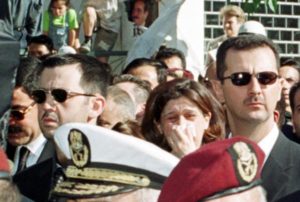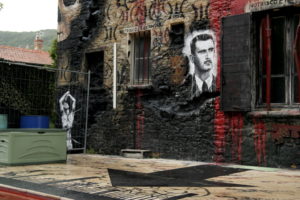The Regime of Bashar al-Assad

The Syrian Arab Republic (Syria)—the Defendant in both the Colvin and Mzaik cases—is ruled by a single-party dictatorship under the control of President Bashar al-Assad, Regional Secretary of the Socialist Arab Ba’ath Party and General Commander of the Army and Armed Forces (Assad Regime).
The Assad family’s control over Syria dates back to 1970 when a military coup brought Hafez al-Assad, Bashar al-Assad’s father, to power. Bashar al-Assad succeeded his father in 2000 and further entrenched existing corruption, economic inequality and human rights abuses. Since December 29, 1979, the United States has designated Syria a state-sponsor of terrorism.

Bashar al-Assad maintains loyalty and control over the Syrian people through the mukhabarat (a feared network of intelligence agencies modeled after the secret police of the former Soviet bloc), the Syrian military, and paramilitary forces often referred to as “shabiha.” Through these different bodies, President Assad has instrumentalized state terror through the surveil, torture and murder of anyone opposing the Regime.
In early 2011, a wave of protests popularly known as the “Arab Spring” swept the Middle East, calling for reform, democracy, and an end to state brutality and corruption. Largely peaceful protests inspired by the Arab Spring erupted across Syria in March 2011 following the arrest and torture of children who had painted anti-Assad graffiti in Dera’a. Mass demonstrations calling for reform, an end to corruption, and the release of political prisoners soon spread across Syria.
In response, the Assad government launched a brutal crackdown on dissent. It mobilized its security, military, and political apparatus to forcibly suppress the opposition, media, and independent civil society. The regime utilized its pervasive intelligence apparatus to monitor, track, detain, torture, and kill tens of thousands of Syrians across the country. The Air Force Intelligence Directorate, which operates an expansive network of detention facilities and controls the Mezzeh Military Airport detention facility where the Plaintiff in Mzaik v. Syrian Arab Republic was tortured, was – and continues to be – at the forefront of the Syrian government’s campaign of repression.

